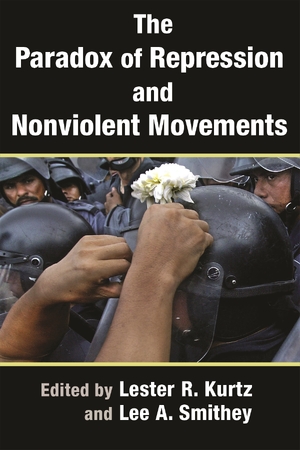"The authors have achieved something remarkable: to shift the accent of peace studies from the level of governments and international institutions to the level of ordinary people."—Fred Dallmayr, author of Peace Talks: Who Will Listen?
"Taking the reader from Bali to El Salvador, from Cairo in Egypt to Ferguson in Missouri, and on other geographical leaps, these studies on peacebuilding in our hazardous times may also tell us something about ourselves."—Rajmohan Gandhi, author of Gandhi: The Man, His People, and the Empire
Description
People’s Peace lays a solid foundation for the argument that global peace is possible because ordinary people are its architects. Saikia and Haines offer a unique and imaginative perspective on people’s daily lives across the world as they struggle to create peace despite escalating political violence. The volume’s focus on local and ordinary efforts highlights peace as a lived experience that goes beyond national and international peace efforts. In addition, the contributors’ emphasis on the role of religion as a catalyst for peace moves away from the usual depiction of religion as a source of divisiveness and conflict.
Spanning a range of humanities disciplines, the essays in this volume provide case studies of individuals defying authority or overcoming cultural stigmas to create peaceful relations in their communities. From investigating how ancient Jews established communal justice to exploring how black and white citizens in Ferguson, Missouri, are working to achieve racial harmony, the contributors find that people are acting independently of governments and institutions to identify everyday methods of coexisting with others. In putting these various approaches in dialogue with each other, this volume produces a theoretical intervention that shifts the study of peace away from national and international organizations and institutions toward locating successful peaceful efforts in the everyday lives of individuals.
About the Author
Yasmin Saikia has held the Hardt-Nickachos Endowed Chair in Peace Studies since 2010 and is a professor of South Asian history at Arizona State University. She is the author of Fragmented Memories, which won the Srikanta Datta Best Book Award on Northeast India and the Social Sciences (2005), and Women, War, and the Making of Bangladesh, which was honored with the Oral History Association Biennial Book Award in 2013.
Chad Haines is a cultural anthropologist and associate professor of religious studies and senior sustainability scholar at Arizona State University. He is the author of Nation, Territory and Globalization in Pakistan: Traversing the Margins (2012) and a forthcoming volume on Muslim modernities, urbanism, and everyday ethics in Cairo, Islamabad, and Dubai.
Related Interest
November 2019




